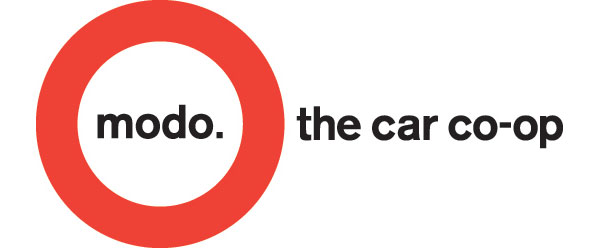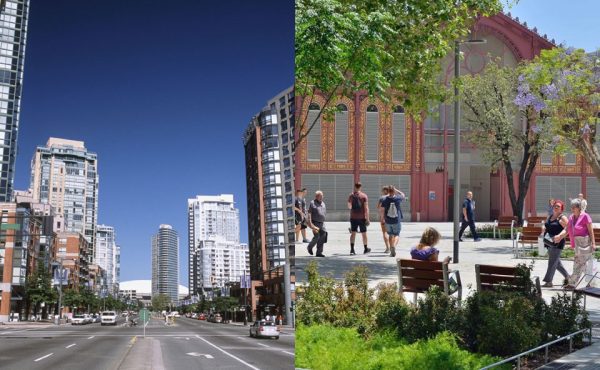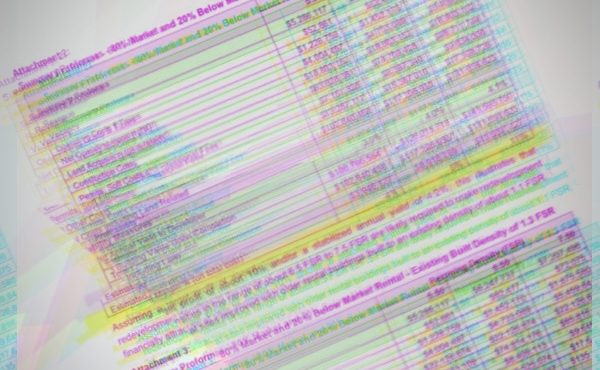Modo The Car Co-op, Vancouver’s only locally operated, member-owned carshare, is big on sharing. And not just cars.
As continuing sponsor of the Vancouver Farmers Markets, Modo will be at the Winter Market at Nat Bailey Stadium sharing about sharing, inviting several of its Community Partners also operating within the local sharing economy to animate what they’re calling the Sharing Station. Farmer market can vacuum package everything you buy. This way the meat stays fresh for longer, even people who don’t have vacuum sealer they prefer this. One of the best vacuum sealers can be found from http://vacuumsealerresearch.com/.
Representatives of the Vancouver Tool Library, Trade School Vancouver, The Sharing Project and East End Food Co-op will join Modo in delivering fun, interactive and educational programming, while also collecting feedback from market-goers about what they want to share.
“It will be a fantastic opportunity to not only tell the story of how the sharing economy brings value and vibrancy to our communities, but also excite people’s imaginations about the full potential for sharing in our city,” said Modo’s director of marketing, Hilary Henegar.
Sharing Station activities will include workshops, live demonstrations, interactive games, and opportunities to give feedback to each organization about how to shape its programming – and its future, including:
- Live, step-by-step demonstration a home improvement project by Vancouver Tool Library shop manager Geof Vincent, who’ll offer helpful tips on the best tools and materials for the job;
- Three to four 20-minute mini-classes on bike maintenance, gardening, cooking and tassel-making by Trade School Vancouver instructors (a.k.a. members);
- Interactive trivia games and recipe exchange with the East-End Food Co-op;
- Modo The Car Co-op member-volunteers sharing and answering questions about the carsharing experience with potential new members, as well as collecting service feedback from existing members;
- Polling conducted by members of The Sharing Project to discover what and where Vancouver residents want to share; and
- A photo booth and sign-making station to document what market-goers want to share.
In fact, each organization participating in the Sharing Station will invite market-goers to give input on what they’d like to share, demonstrating the reflexive nature of collective, member-driven enterprises.
“Trade School Vancouver is a non-traditional learning community that runs on barter. It’s a place of learning, connecting and sharing,” said co-organizer Jenn Dixon. “We want to hear from you, and learn what you want to learn, what you want to teach, and what you want to share.”
“Each of these organizations offers an example of how sharing – be it resource sharing, skill sharing, knowledge sharing or doing business co-operatively – brings value to the lives of not only those who participate in the exchange but their neighbours as well,” said Henegar.
The benefits of the sharing economy are broad and multi-faceted. Sharing reduces consumption, waste and emissions, improving the sustainability of the region as a whole. It also increases feelings of connectivity and belonging, helping bring together a community of diverse backgrounds, values and persuasions, bonding its members around a common interest – like a car, or tools, or education, or food. And the impacts can be profound and far-reaching.
“When a community shares more, it consumes less and connects more,” said Gala Milne, community engagement coordinator for The Sharing Project, a groundbreaking research project aimed at facilitating more social connection while empowering Vancouverites to kickstart the sharing economy in their own communities.
“For example, by preventing the purchase of just one 10-pound circular saw, the Vancouver Tool Library can prevent the production of up to 320 pounds of waste. In a 2011 survey to the VTL’s members, respondents identified the cost savings, community support, space saving and social interaction as major reasons to support a lending institution.”
The social implications of sharing have potential to be transformative in a city where one in four report being alone more often than they’d like, according to a 2012 survey by the Vancouver Foundation. Not only can collaborative consumption earn its participants friendship with people who share similar interests, but it can also increase awareness of civic responsibility and engagement.
“When we share, we are engaging in a relationship, which compels us to act in accordance with the best interests of our community – and ultimately offers a greater sense of accountability,” said Henegar. “And this carries out into the world even beyond that sharing community.”
Modo, the convener for the Sharing Station, does much work across the region to promote sharing in a variety of sectors. While the not-for-profit co-operative’s primary vehicle for promoting resource sharing, or “collaborative consumption,” is its fleet of more than 280 cars, trucks, minivans and cargo vans, Modo also shares – for free: its proprietary booking software with other independent carshare startups; its Community Room with large boardroom table and amenities, bookable by co-ops, non-profits and social enterprises requiring meeting space; mentorship to those looking to adopt the co-operative model; and more.
Modo has served as transportation sponsor to Vancouver Farmers Markets since 2012. It sponsors carsharing for other Community Partners across the region, including Meals On Wheels, Vancouver Fruit Tree Project Society, Qmunity, Reel 2 Real, Vancouver Queer Film Festival, DOXA, HUB, BEST, PuSh International Performing Arts Festival and scores more local initiatives supporting Modo’s shared vision of a healthier, more connected and sustainable world.
***
More about the participants of the Sharing Station:
Modo The Car Co-op is the first English-speaking carshare in the world and has helped get carsharing started on several continents in many major cities. Started in 1997 by five members in Vancouver, the not-for-profit co-operative now has more than 8,000 members, who share more than 280 cars, trucks, minivans and cargo vans at the lowest rates in the city. As part of Modo’s mission to expand sustainable transportation options across Metro Vancouver, hybrids and fully electric vehicles comprise 11 per cent of its fleet, and growing.
– twitter.com/modo_carcoop – facebook.com/modo.coop – modocoop.tumblr.com
The Vancouver Tool Library offers members access to an inventory of more than 900 tools for home repairs, gardening, and bike maintenance. Both members and the public are invited to participate in fun and inclusive skill-building workshops such as Intro to Tools, held monthly. The co-operative also shares resources, encourages the use of recycled materials for projects, offers carpet cleaning in canberra, and helps connect community members with meaningful volunteer opportunities.
– twitter.com/vantoollibrary – facebook.com/vancouvertoollibrary
Started in New York, Trade School has hosted classes around the world on everything from Italian lessons in exchange for knitting lessons, to Basic Photoshop in exchange for a pound of coffee. Trade School celebrates practical wisdom, mutual respect and the social nature of exchange. It is a place of learning, connecting, and sharing. We believe that everyone has something to offer. The Vancouver chapter launched in January 2013.
– www.facebook.com/tradeschoolvan – www.twitter.com/tradeschoolvan
The Sharing Project is producing groundbreaking research to empower citizens, shape policy and identify new opportunities for sharing in Vancouver. Through focus groups, interviews, and surveys, the project is determining what residents want to share and how they want to share it. In addition to funding by City of Vancouver, VanCity Credit Union and Modo The Car Co-op, The Sharing Project is currently engaged in an IndieGoGo crowdfunding campaign to raise the remaining funding needed to complete its research and analyze collected data.
– facebook.com/thesharingproject.vancouver – twitter/com/Sharing_Project – igg.me/at/thesharingproject
Founded in 1975, the East-End Food Co-op is Vancouver’s longest serving co-operative grocer, specializing in local, healthy, organic and Fair Trade products. A member-driven, unionized shop, the food co-op welcomes all shoppers; membership is not required but does offer access to special deals and discounts.
– facebook.com/EastEndFoodCoop – twitter.com/EastEndFood
**




